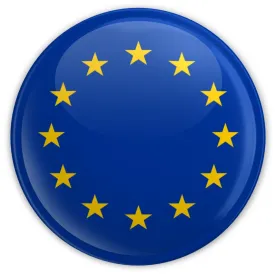Ending months of speculation, Danish Commissioner Margrethe Vestager (46) has been nominated for the Competition portfolio in the European Commission. The former Danish Minister of Economic Affairs and the Interior, and Deputy-Prime Minister, will take up one of the most powerful positions in the Commission, succeeding Joaquín Almunia, with the task of scrutinizing mergers and hunting illegal cartels and state aid for a term of five years.
Vestager obtained a degree in economics from the University of Copenhagen in 1993, after which she immediately took on important positions within the Social Liberal Party (SLP). Vestager is not someone to be trifled with. In her role of Minister of Economic Affairs, she led some important discussions during Denmark’s EU presidency, negotiating a new law to safeguard derivative markets. She also brokered the agreement imposing losses on banks’ investors in case of failure, thereby providing a strong basis for the EU policy on government bank rescues. She is said to be methodical, unprejudiced and pragmatic in her work.
An additional level of hierarchy is being created within the College of Commissioners. The Commissioner for Competition will not hold a Vice Presidency but will liaise with other Commission Vice Presidents and contribute to their projects. The Mission Letter of President elect Juncker insists on the fact that Commissioner Vestager “will, in particular, contribute to projects steered and coordinated by the Vice-President for Jobs, Growth, Investment and Competitiveness [Jyrki Katalnen], the Vice-President for the Digital Single Market [Andrus Ansip] and the Vice-President for Energy Union [Alenka Bratusek]. As a rule, you will liaise closely with the Vice-President for Jobs, Growth, Investment and Competitiveness in defining the general lines of our competition and state aid policies and the instruments of general scope related to them”.
Juncker’s Mission Letter to Vestager also asks the new Commissioner to focus on “[m]obilising competition policy tools and market expertise so that they contribute, as appropriate, to our jobs and growth agenda, including in areas such as the digital single market, energy policy, financial services, industrial policy and the fight against tax evasion. In this context, it will be important to keep developing an economic as well as a legal approach to the assessment of competition issues and to further develop market monitoring in support of the broader activities of the Commission”.
The question can be raised whether this means that competition law will be playing more of an instrumental role and would be more permeable to influences from other policy areas. Vestager herself underlined the importance of fairness, legal certainty and transparency in her mission.
Vestager will need to be rigorous when taking on her duties as a Commissioner, as there will be billion dollar multi-national companies waiting for her verdict. For instance, she will continue the investigation into the credit derivatives market involving some of the biggest banks in the world. Next, she will decide whether the tax arrangements granted to Apple, Starbucks and Fiat by Ireland, Luxemburg and the Netherlands, consist of unfair advantages in the light of European competition objectives. In addition, she will be dealing with the investigation of Google after Google’s last settlement proposal was rejected following negative feedback from competitors.
The European Commission will officially take office in November 2014, after the European Parliament has approved of Jean-Claude Juncker’s team and the final division of portfolios.






 />i
/>i
